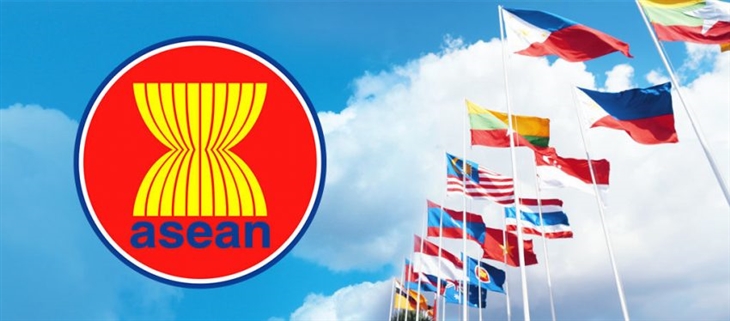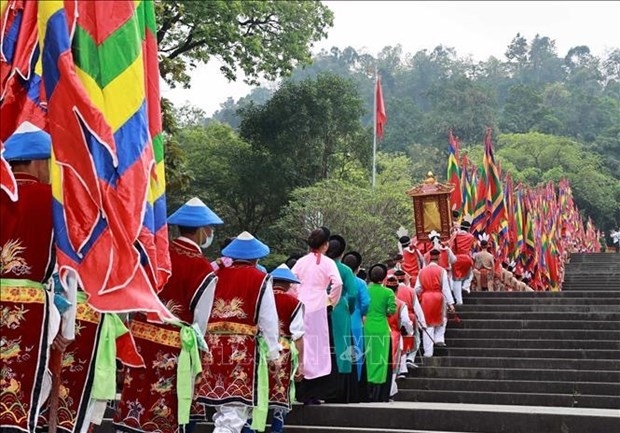
AsemconnectVietnam - Asean has made considerable progress in the implementation of the Asean Economic Community (AEC) Blueprint 2025, said Minister of International Trade and Industry, Datuk Darell Leiking.
He said economic integration is a dynamic process and the AEC Blueprint 2025 is being implemented through the work plans of various sectoral bodies in Asean.
“These sectoral work plans are reviewed and updated periodically to ensure their relevance and effectiveness,” he told Bernama in an interview at the “Business and Investment Opportunities in Malaysia as the Gateway to Asean” seminar here today.
He said the Asean chairmanship that is rotated among the member states every year would prioritise deliverables to be completed annually, adding that the association has made considerable progress towards achieving these deliverables.
Darell said key achievements include the elimination of intra-Asean tariffs and intensification of efforts to enhance trade facilitation and address non-tariff measures in the bloc.
He said seven Asean member states have also joined the live operation of the Asean Single Window that facilitates the electronic transmission of certificate of origin for the purpose of claiming preferential duties by importers, and the remaining member states are expected to come on board within the year.
“The association has also worked on deepening services and investment integration in the region.
“Two key agreements were signed at the 25th Asean Economic Ministers’ Retreat on April 23 this year, namely the Asean Trade in Services Agreement and the Fourth Protocol to Amend the Asean Comprehensive Investment Agreement,” he said.
Darell said the agreements provide for greater liberalisation of the services sector and reduce the number of performance requirements imposed on intra-Asean investments.
Other milestones include the Asean Agreement on Movement of Natural Persons and the realisation of air transport cooperation through the open skies policy for the Asean market in April 2016 that encompasses passenger air services and air freight services.
He said to ensure that the AEC Blueprint 2025 is on track, the Asean Integration Monitoring Directorate (AIMD) has been established by the Asean Secretariat.
Asked how Malaysia could benefit from the United States (US)-China trade conflict, Darell said the country would be able to attract more high quality and sustainable foreign direct investments (FDIs) into the country.
He said Malaysia has a stable political environment and sound economic fundamentals that are essential for a conducive business environment.
“Other factors also contribute to Malaysia’s comparative advantage such as a world class logistics infrastructure, regional and international connectivity, skilled workforce, cost-competitiveness, ease of doing business, good quality of life as well as a well-developed industry ecosystem and supply chain,” he said.
Nevertheless, he acknowledged that most economies — particularly Asean member states and companies outside the US and China — would be affected in the medium and long run due to their interconnected supply chain in the global market.
“The United Nations Conference on Trade and Development estimated that about two-thirds of world trade now occurs through global production,” he said.
He said since the onset of the trade conflict, the Ministry of International Trade and Industry (MITI) and its trade facilitation agency, the Malaysia External Trade Development Corporation (Matrade), have been actively looking at programmes to tap into the opportunities arising from the trade conflict.
“Matrade has been working on several initiatives to assist foreign companies to find suitable Malaysian contract manufacturers to manufacture products in Malaysia and has also assisted foreign multinational companies that are based in Malaysia to substitute imports through the Global Sourcing and Partner Development Programme,” he said.
He said MITI and investment promotion agencies such as the Malaysian Investment Development Authority (MIDA) and InvestKL Corporation will continue their efforts to attract good quality foreign direct investments and encourage domestic direct investments by providing matching grants through schemes such as the Domestic Investment Strategic Fund.
“With a well-diversified economy and continued interest from foreign investors, Malaysia will be better positioned to weather the oncoming economic storms,” he added.
Asean is a regional intergovernmental organisation, comprising 10 South-east Asian nations namely Malaysia, Singapore, Thailand, Indonesia, Brunei, Vietnam, the Philippines, Myanmar, Cambodia and Laos.
Last year, Asean recorded a combined gross domestic product of US$3 trillion, placing the bloc as the world’s fifth largest economy.
In 2018, Asean recorded a total trade of US$2.8 trillion and attracted US$154.7 billion worth of investment.
The one-day seminar, themed “Malaysia-Australia: Leveraging Partnership, Bridging Opportunities”, was co-organised by MIDA and Matrade in conjunction with the trade and investment mission to Australia from August 19-23, led by Darell.
The seminar attracted 221 participants, including manufacturers, professional and business service providers, real estate developers, traders, chambers and industry associations as well as government officials.
Source: malaymail.com






